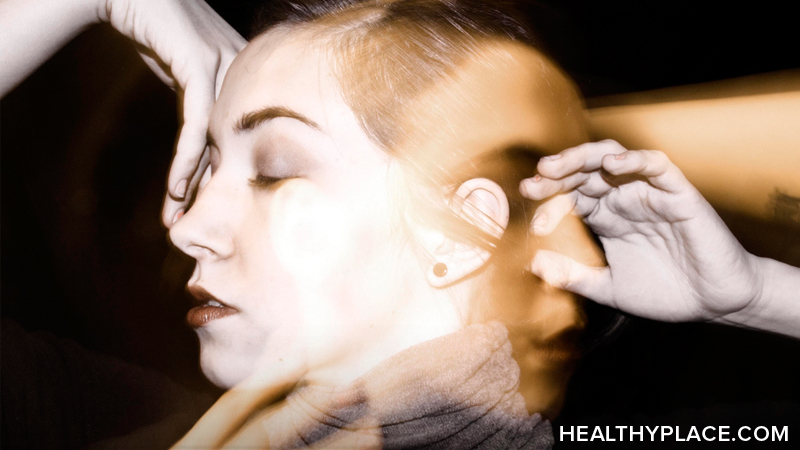What Is Paranoid Schizophrenia? Symptoms, Causes, Treatments

Paranoid schizophrenia represents the most common of the many sub-types of the debilitating mental illness known collectively as schizophrenia. People with all types of schizophrenia become lost in psychosis of varying intensity, causing them to lose touch with reality. Untreated, people with psychotic disorders lose their ability to function in daily life.
Paranoid Schizophrenic – Drowning in Suspicion and Obsession
Typically, a paranoid schizophrenic experiences auditory hallucinations along with deluded thought processes and beliefs. They often believe others plot and conspire against them or their family members. People with paranoid schizophrenia tend to fare better than those suffering from one of the other subtypes. They experience fewer issues with concentration, memory, and emotional apathy, allowing them to function better in everyday life.
Paranoid Schizophrenia Symptoms
Patients often describe life with paranoid schizophrenia as a dark and fragmented world – a life marked by suspicion and isolation where voices and visions torment them in a daily waking nightmare.
Common paranoid schizophrenia symptoms may include:
- Auditory disturbances – hearing things that are not real (more on hallucinations and delusions)
- Unexplained anger
- Emotional disconnectedness
- Severe anxiety and agitation
- Argumentative behavior
- Violent tendencies (more on violent behaviors and schizophrenia)
- Delusions of grandeur – self-importance and believing he or she possesses special powers
- Frequent suicidal thoughts and behavior
While all the above symptoms of paranoid schizophrenia can occur across the different types of schizophrenia, two, in particular, set it apart from the other sub-types – paranoid delusions and auditory disturbances.
Paranoid Delusions – When suffering from paranoid schizophrenia, you feel that others are conspiring against you. As these paranoid thoughts intensify, you may behave aggressively or commit violence in self-defense against those you believe plan to cause harm to you or a loved one. You may also think you possess special powers, such as the ability to breathe underwater or fly like a bird. You may believe you’re famous or that a famous person wants to date you. Even though others present contrary evidence, you hold onto these beliefs anyway.
Auditory hallucinations that are unpleasant and cruel – Imagine sitting in your living room. You hear voices in the room, but no one else can hear them. You might hear one person’s voice or two or more people conversing. They may talk to you or about you amongst each other. They criticize you; cruelly poke fun at your real or perceived flaws. Suddenly, one of the voices orders you to hurt someone else or yourself. Although not real, to you they absolutely are.
Causes of Paranoid Schizophrenia Symptoms
Researchers do not have a clear understanding of the causes of paranoid schizophrenia symptoms or those associated with any of the sub-types. Although experts believe that brain dysfunction has a role in causing the onset of most types of the disorder, they don’t know what causes the dysfunction initially. Research indicates that both genetics and environmental triggers work together to trigger the onset.
Think of any genetic predisposition for developing psychotic disorders as rows of levers or switches. People and events represent your environment. If a person, event, or combination of these flips your switches at certain of times and in a particular order, you develop signs of paranoid schizophrenia. These initial signs signal the onset of the disorder. Research studies indicate that an imbalance of brain chemicals contributes to the onset of the first psychotic episode, leading to paranoid schizophrenia symptoms.
Risk factors that increase chances of a paranoid schizophrenia diagnosis include:
- family history of psychotic disorders
- exposure to a viral infection in the womb
- fetal malnutrition
- stress in early childhood
- sexual or physical abuse
- older parental age
- use of psychoactive drugs during adolescence
Treatment of Paranoid Schizophrenia
Treatment of paranoid schizophrenia involves a lifelong commitment; no cure for schizophrenia exists. Treatment, essentially the same for all types of the disorder, varies based on symptom intensity and severity, patient medical history, age, and other individually relevant factors.
Treatments for paranoid schizophrenia require a team of medical and mental health professionals as well as social workers. Treatment strategies may include one or more of several options: antipsychotic medications (both traditional and atypical), psychotherapy for schizophrenia for patient and family, hospitalization, electroconvulsive therapy (ECT), and social skills development training.
For psychotherapeutic and other non-pharmaceutical interventions to work, doctors must first control paranoid schizophrenia symptoms. They accomplish this by prescribing one or more antipsychotic drugs. For the drugs to do their work effectively, the patient must comply with the physician orders by closely adhering to dosing instructions and schedule.
Medication non-compliance represents a significant problem in the efficacy of treatment and eventual recovery of paranoid schizophrenic patients. A high percentage of patients choose to stop taking their medications during the first year of treatment, allowing psychosis to return and the debilitating clutches of the disorder to take over once again.
The High Personal and Collateral Costs of Paranoid Schizophrenia
Untreated paranoid schizophrenia can lead to a continual worsening of symptoms and a total loss of touch with reality. Suicidal thoughts and actions commonly plague those with paranoid schizophrenia and the other types as well. If you suspect a family member is showing paranoid schizophrenia signs and symptoms, urge him or her to seek help immediately. If necessary, check into the necessary steps required have your loved one evaluated involuntarily by a psychiatrist. (Help for family members and schizophrenia patients.)
APA Reference
Gluck, S.
(2021, December 20). What Is Paranoid Schizophrenia? Symptoms, Causes, Treatments, HealthyPlace. Retrieved
on 2026, February 4 from https://www.healthyplace.com/thought-disorders/schizophrenia-information/what-is-paranoid-schizophrenia-symptoms-causes-treatments


